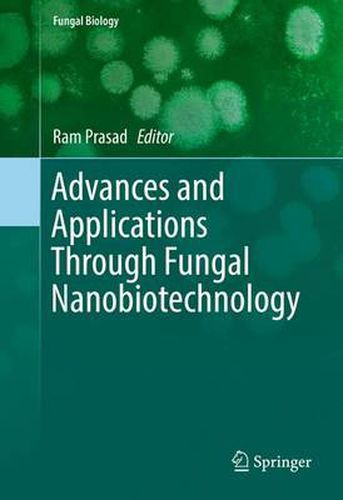Readings Newsletter
Become a Readings Member to make your shopping experience even easier.
Sign in or sign up for free!
You’re not far away from qualifying for FREE standard shipping within Australia
You’ve qualified for FREE standard shipping within Australia
The cart is loading…






This title is printed to order. This book may have been self-published. If so, we cannot guarantee the quality of the content. In the main most books will have gone through the editing process however some may not. We therefore suggest that you be aware of this before ordering this book. If in doubt check either the author or publisher’s details as we are unable to accept any returns unless they are faulty. Please contact us if you have any questions.
Fungal nanobiotechnology has emerged as one of the key technologies, and an eco-friendly, as a source of food and harnessed to ferment and preserve foods and beverages, as well as applications in human health (antibiotics, anti-cholesterol statins, and immunosuppressive agents), while industry has used fungi for large-scale production of enzymes, acids, biosurfactants, and to manage fungal disease in crops and pest control. With the harnessing of nanotechnology, fungi have grown increasingly important by providing a greener alternative to chemically synthesized nanoparticles.
$9.00 standard shipping within Australia
FREE standard shipping within Australia for orders over $100.00
Express & International shipping calculated at checkout
This title is printed to order. This book may have been self-published. If so, we cannot guarantee the quality of the content. In the main most books will have gone through the editing process however some may not. We therefore suggest that you be aware of this before ordering this book. If in doubt check either the author or publisher’s details as we are unable to accept any returns unless they are faulty. Please contact us if you have any questions.
Fungal nanobiotechnology has emerged as one of the key technologies, and an eco-friendly, as a source of food and harnessed to ferment and preserve foods and beverages, as well as applications in human health (antibiotics, anti-cholesterol statins, and immunosuppressive agents), while industry has used fungi for large-scale production of enzymes, acids, biosurfactants, and to manage fungal disease in crops and pest control. With the harnessing of nanotechnology, fungi have grown increasingly important by providing a greener alternative to chemically synthesized nanoparticles.